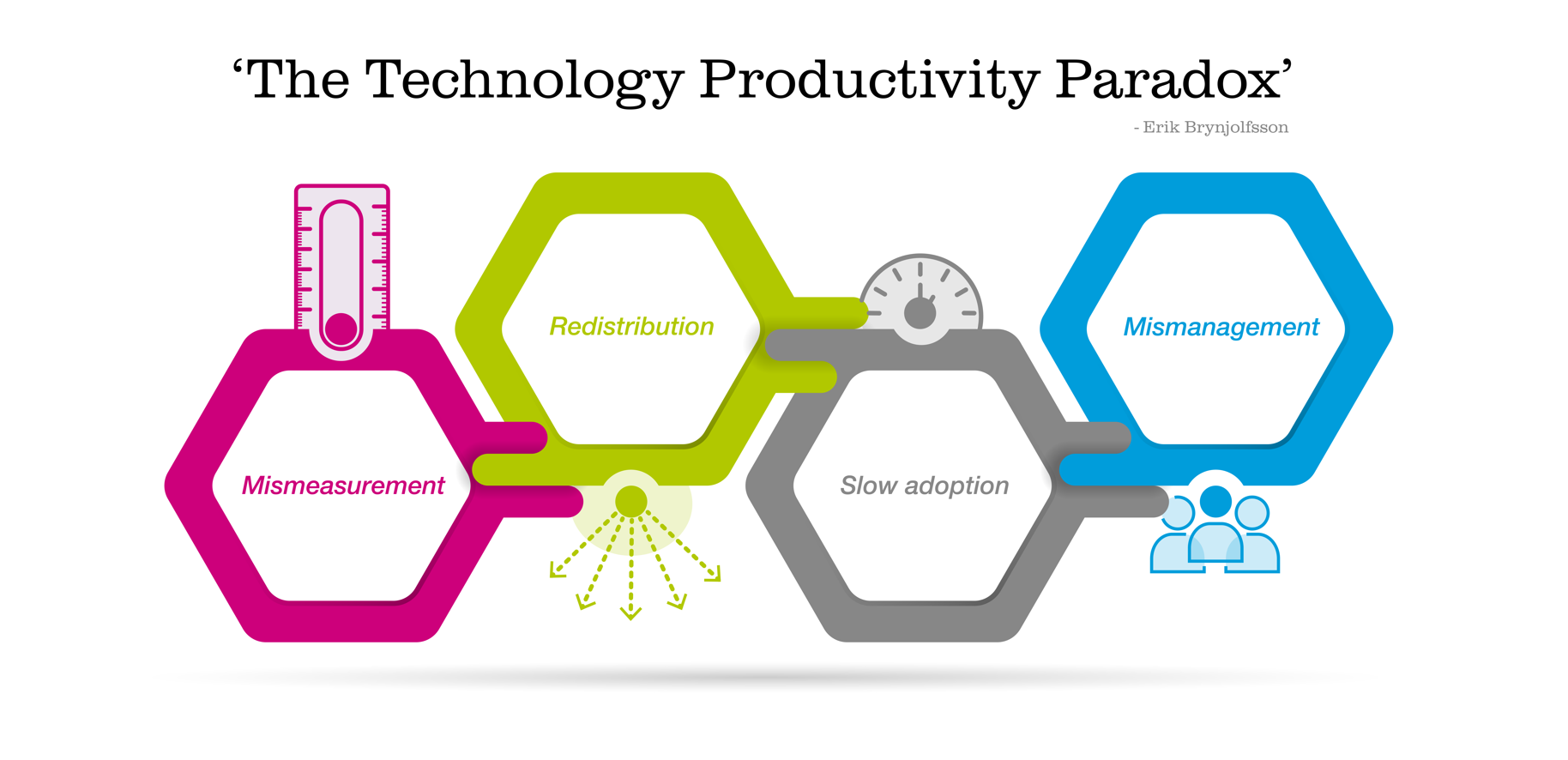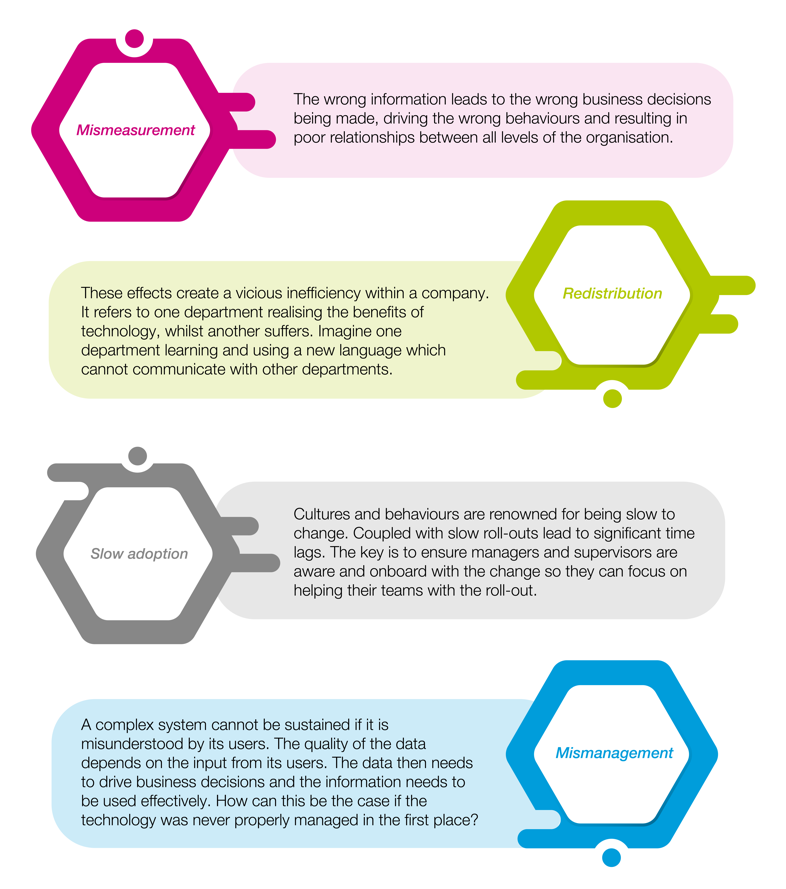The UK government recently announced its intention to increase departmental budgets by 3% a year, over the next 3 years. This is all in a bid to meet the promise to spread prosperity to “left-behind regions” and to boost productivity to deliver the promise of a “high-wage, high-skill economy”. However, history shows that there is not a perfect correlation between spending and productivity.
Investments in machinery, information and communication technology increased significantly during the pandemic, with worldwide IT spending projected to total $4.2 trillion in 2021, an increase of 8.6% from 2020. However, a large proportion of firms are struggling to see the benefits feed down to the bottom line, resulting in financial and emotional frustration.
So why might this be?
Brynjolfsson proposed 4 causes for this disparity, called the ‘The Technology Productivity Paradox’:
So what can key decision makers in business do to ensure those benefits are realised?
Only an investment into your people alongside the technology will yield those results.
It is widely argued that for real digital sustainability, investing in people is just as important as the investment in technology. However, we’ve observed that this investment is lacking within a wide variety of industries. Furthermore, little is understood about what area that investment should actually be in. More often than not, simple digital training programmes are rolled out to employees or complex digital ‘transformations’ are viewed as the solution to departmental problems. These often lack the level of engagement that 1:1 coaching and mentoring provides. When you invest in your employees, you attract and keep all the best people. In our experience, focusing on helping managers by providing the correct support and development is the key to realising any benefits of an investment in technology.
When you take a deep dive into your business to the core, it’s your people that add value – the technology acts as a catalyst to help them deliver more.
Blog written by: Elliott Fletcher


